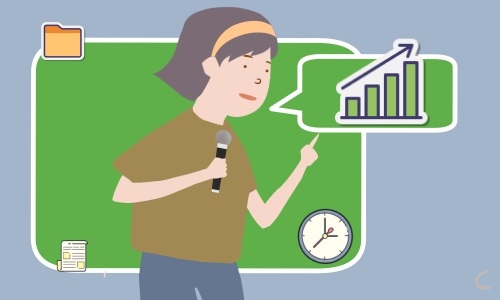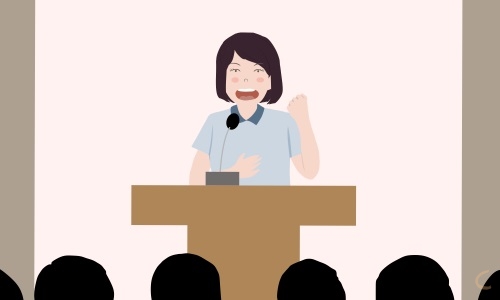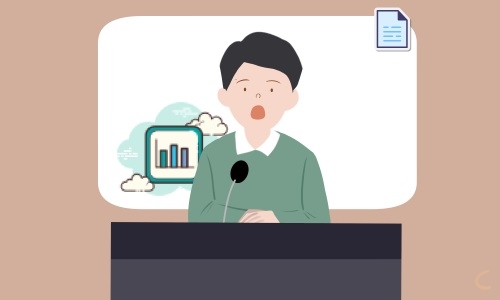在各大高校英语演讲中,甚至是各级别的英语演讲比赛中,常常感觉学生的演讲稿缺乏实质性的劝说力和感染力。小编为大家整理了诚信英文演讲稿,欢迎大家阅读。

诚信英文演讲稿篇一
Ladies and Gentlemen: My topic is Honesty.
As a correspondent of the Qingdao Morning News, I visited Dr. James Gilman, the President of the International Committee for Marco Polo Studies in England. In this picture, this is James, and this is me and we are looking at a dragon’s tooth. This is a true story.
65 years ago, James lived in Qingdao. Then he was only 5 years old. He often visited the Aquarium and was fascinated by a creature on display there, which he thought was a dragon. He was afraid of its sharp teeth and wanted one to keep as a treasure.
In the late 1930s, when the Japanese occupied Qingdao, his family had to leave. On his last day in Qingdao, he ran to the Aquarium and pulled out one of the teeth from the dragon’s mouth.
He kept the tooth for the next 65 years, but the feeling of guilt at having stolen it was there in the background all through his life. It was always on his conscience, and the feeling intensified as he became older. Finally he decided to put right his childish error. In 2002, he visited Qingdao and returned it to the Aquarium with his sincere apologies. He received a warm welcome.
When James visited Qingdao, I accompanied him all the time and reported on his visit. I was deeply touched by his honesty. It has taught me a lot. I think to err is human. The important thing is to have the courage to admit and correct one’s error.
Honesty is a vital quality of human behaviour. So we should try to keep an honest mind in everything we say and do. I would like to say to all of my friends: Let’s be honest people of good moral character.
Thank you.
诚信英文演讲稿篇二
Since the quality of honesty applies to all behaviors, one cannot refuse to consider factual information, for example, in an unbiased manner and still claim that one's knowledge, belief or position is an attempt to be truthful. Such a belie
f is clearly a product of one's desires and simply has nothing to do with the human ability to know. Basing one's positions on what one wants — rather than unbiased evidence gathering — is dishonest even when good intentions can be cited — after all even Hitler could cite good intentions and intended glory for a select group of people. Clearly then, an unbiased approach to the truth is a requirement of honesty.
Because intentions are closely related to fairness and certainly affect the degree of honesty/dishonesty, there is a wide spread confusion about honesty--and a general belief that being dishonest means that one ALWAYS correctly understands if their behavior is either honest or dishonest. Self-perception of our morality is non-static and volatile. It's often at the moment we refuse to consider other perspectives that there is a clear indication we are not pursuing the truth, rather than simply and exclusively at the moment we can muster up evidence that we are right. Socrates had much to say about truth, honesty and morality, and explained that if people really understood that their behavior was wrong — then they simply wouldn't do it — by definition. Unfortunately, honesty in the western tradition has been marginalized to specific instances — perhaps because a thorough understanding of honesty collides with ideologies of all types. Ideologies and idealism often exaggerate and suppress evidence in order to support their perspectives — at the eXPense of the truth. This process erodes the practice and understanding of honesty. To an ideologist the truth quite often becomes insignificant, what matters most are their ideals and what ever supports their desires to enjoy and spread those ideals.
Human beings are inherently biased about what they believe to be good due to individual tastes & backgrounds, but once one understands that a decidedly biased approach to what is true — is inherently dishonest, one can also understand how idealism and ideology have poorly served the quest for an honest, moral society. Both honesty and morality require that we base our opinions about what is good — upon unbiased ideas of what is TRUE — rather than vice versa (determining what is true based on what we feel is good) — the way all ideologies would have us believe.
诚信英文演讲稿篇三
since the quality of honesty applies to all behaviors, one cannot refuse to consider factual information, for example, in an unbiased manner and still claim that one's knowledge, belief or position is an attempt to be truthful. such a belief is clearly a product of one's desires and simply has nothing to do with the human ability to know. basing one's positions on what one wants — rather than unbiased evidence gathering — is dishonest even when good intentions can be cited — after all even hitler could cite good intentions and intended glory for a select group of people. clearly then, an unbiased approach to the truth is a requirement of honesty.
because intentions are closely related to fairness and certainly affect the degree of honesty/dishonesty, there is a wide spread confusion about honesty--and a general belief that being dishonest means that one always correctly understands if their behavior is either honest or dishonest. self-perception of our morality is non-static and volatile. it's often at the moment we refuse to consider other perspectives that there is a clear indication we are not pursuing the truth, rather than simply and exclusively at the moment we can muster up evidence that we are right. socrates had much to say about truth, honesty and morality, and explained that if people really understood that their behavior was wrong — then they simply wouldn't do it — by definition. unfortunately, honesty in the western tradition has been marginalized to specific instances — perhaps because a thorough understanding of honesty collides with ideologies of all types. ideologies and idealism often exaggerate and suppress evidence in order to support their perspectives — at the expense of the truth. this process erodes the practice and understanding of honesty. to an ideologist the truth quite often becomes insignificant, what matters most are their ideals and what ever supports their desires to enjoy and spread those ideals.
human beings are inherently biased about what they believe to be good due to individual tastes & backgrounds, but once one understands that a decidedly biased approach to what is true — is inherently dishonest, one can also understand how idealism and ideology have poorly served the quest for an honest, moral society. both honesty and morality require that we base our opinions about what is good — upon unbiased ideas of what is true — rather than vice versa
(determining what is true based on what we feel is good) — the way all ideologies would have us believe.
诚信英文演讲稿篇四
Good evening, everybody! It’s my honor to speak here, and I am very glad to share my topic with you. Then today I’d like to talk something about honesty.honesty means speaking the truth and being fair and upright in act. There are just a few of words, however,doing it completely is one of the most difficult things. By contrary, Those who lies and cheats is dishonest,those who gain fortunes not by hard labour but by other means is dishonest.
Now,firstly, I will share one short story that is well known in China. It named .In order to persuade her son not to follow her to the fair, the boy’s mother promised her son to kill a pig for him. In fact, she didn’t plan to kill anything.But the pig finally died. Who killed it? Zensheng did.He said,”children know nothing to begin with, but they copy their parents and learn from them, when you cheat the boy, you are teach him to lie” This story tell us, we must have faith. If we always lie to others, we will lose the trust of others.
In the long river of history, there are many such similar stories about honesty. All those stories tell us that people are praising the quality of honesty.It was true that most of people value honesty highly. Therefore,honesty is the traditional virtue of the Chinese nation, we should inherit it and not let it break in our generation.
However, now the situation is not optimistic. In the tide of commodity economy today,it seems that more and more people believe in money at the sacrifice of honesty. This is a reason why phenomena of dishonesty upward trend. In people basic necessities of life, it is flooded with fake and shoddy milk, drainage oil; in the political field, many officials have no honesty carring some false bureaucratic activities or movements; in the social life field, many people believe that good faith is a kind of stupid behavior. They don’t understand that honesty is the biggest fortune humans own, and that it is the pre requisite for doing everything well. Do we really want to live in a world full of lies? I think the answer is no. Paradoxically, we all want to have a good faith society. At the same time, the good faith is also the requirement of economy society. We want to have a good faith society, first of all we should be honest.
As a contemporary college students, we are the symbol of civilzation in our country, we should set an example. Just try to put honesty into action in our normal life, we can start small. Like clean up our rooms after making a promise, turn in a wallet full of money that we found, keep a friend’s secret and so on. I believe, the good faith society will come back if we contrive for it!
That’s all. Thank you for listening, ladies and gentlemen.
诚信英文演讲稿篇五
Ladies and Gentlemen: My topic is Honesty.
As a correspondent of the Qingdao Morning News, I visited Dr. James Gilman, the President of the International Committee for Marco Polo Studies in England. In this picture, this is James, and this is me and we are looking at a dragon’s tooth. This is a true story.
65 years ago, James lived in Qingdao. Then he was only 5 years old. He often visited the Aquarium and was fascinated by a creature on display there, which he thought was a dragon. He was afraid of its sharp teeth and wanted one to keep as a treasure.
In the late 1930s, when the Japanese occupied Qingdao, his family had to leave. On his last day in Qingdao, he ran to the Aquarium and pulled out one of the teeth from the dragon’s mouth.
He kept the tooth for the next 65 years, but the feeling of guilt at having stolen it was there in the background all through his life. It was always on his conscience, and the feeling intensified as he became older. Finally he decided to put right his childish error. In 2002, he visited Qingdao and returned it to the Aquarium with his sincere apologies. He received a warm welcome.
When James visited Qingdao, I accompanied him all the time and reported on his visit. I was deeply touched by his honesty. It has taught me a lot. I think to err is human. The important thing is to have the courage to admit and correct one’s error.
Honesty is a vital quality of human behaviour. So we should try to keep an honest mind in everything we say and do. I would like to say to all of my friends: Let’s be honest people of good moral character.
Thank you.
诚信主题英文演讲稿范文5篇推荐
上一篇:励志英文演讲稿范文3分钟精选推荐
下一篇:返回列表






